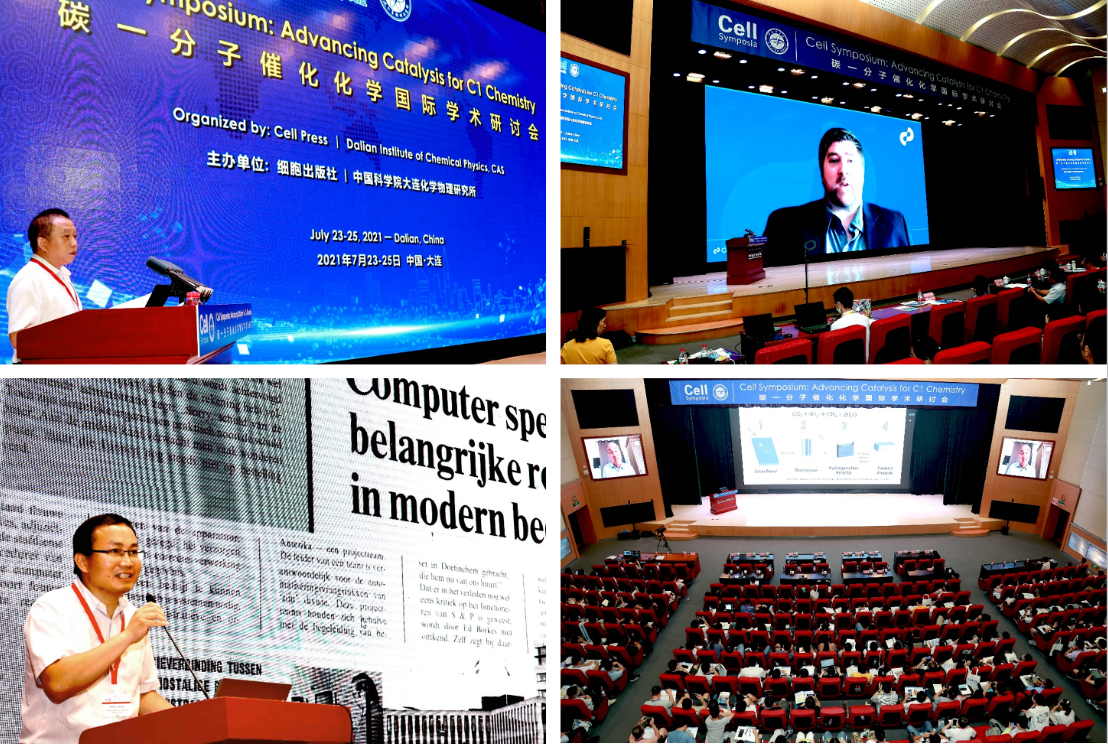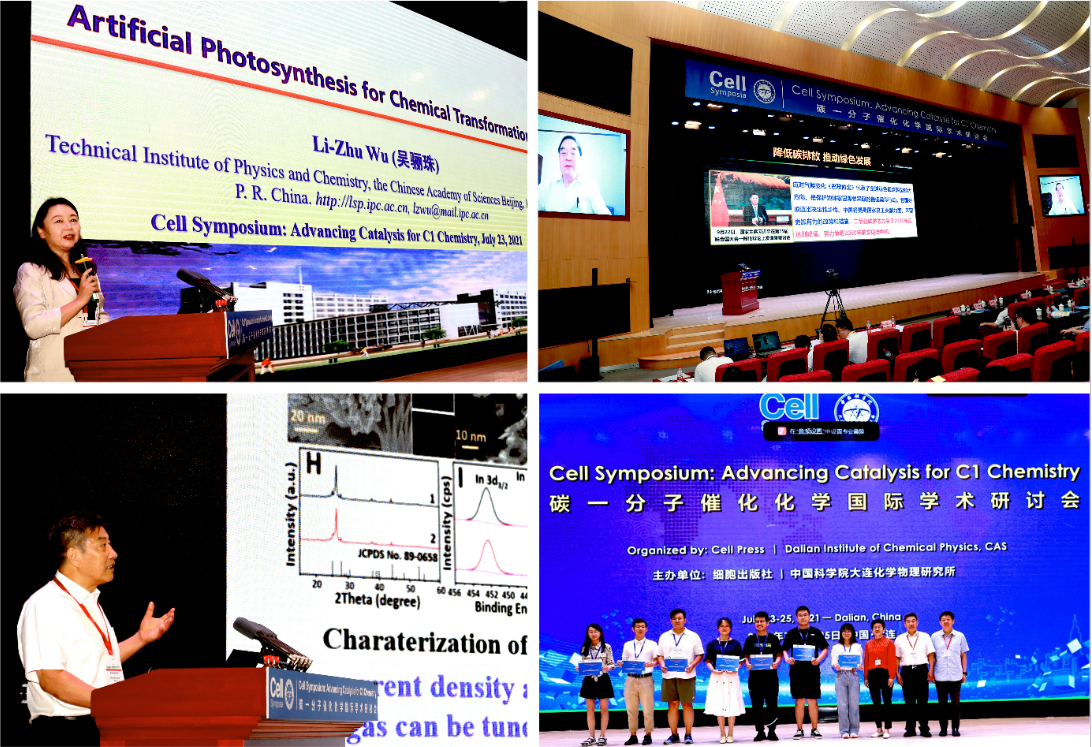The 2021 Cell Symposium: Advancing Catalysis for C1 Chemistry, with the theme of "Frontiers in the Catalytic Conversion of C1 Molecules," was held in Dalian, China from July 23 to July 25. It was cosponsored by Cell Press and the Dalian Institute of Chemical Physics (DICP) of the Chinese Academy of Sciences (CAS).
The program consisted of nine plenary sessions and five keynote speeches, as well as approximately 80 invited reports, 70 short talks, and 60 flash talks. Close to 100 posters were set up of which eight received the Cell Symposium Excellent Poster award. The opening ceremony was hosted by Prof. DENG Dehui of the DICP.

Prof. LIU Zhongmin, academician of the Chinese Academy of Engineering, and director of the DICP, and the Qingdao Institute of Bioenergy and Process of CAS, said in his opening speech that the global energy industry today is undergoing comprehensive and profound changes. In the transformation of the global energy industry toward a sustainable society, the catalytic conversion of C1 molecules represented by methane, methanol, carbon monoxide, and carbon dioxide will play an important role and the advanced catalysis technologies centered on C1 chemistry will provide key support in these processes.
The symposia invited internationally renowned scholars to present the plenaries, including Prof. BAO Xinhe and Prof. LIU Zhongmin from DICP, Prof. HAN Buxing from the Institute of Chemistry of CAS, Prof. WU Lizhu from the Technical Institute of Physics and Chemistry of CAS, Prof. Christophe Copéret from ETH Zurich, Switzerland, Prof. Bert Weckhuysen from the University of Utrecht, the Netherlands, Prof. Emiel Hensen from Eindhoven University of Technology, the Netherlands, Prof. Edward Sargent from the University of Toronto, Canada, and Prof. Núria López from the Institute of Chemical Research of Catalonia, Spain. More than 500 experts and scholars attended the meeting either offline or online.

With the goal of promoting collaboration and idea-sharing, the symposium also held a youth forum on catalysis and invited outstanding young scientists to participate in interdisciplinary exchanges and discussions. This symposium provided a high-level communication platform for scientific researchers in the field of C1 chemistry. The participating experts and scholars conducted in-depth exchanges and discussions on cutting-edge scientific issues and challenges in the thermocatalytic, electrocatalytic, and photocatalytic conversion of syngas, carbon dioxide, methanol, methane, and biomass.

Link: http://www.dicp.cas.cn/xwdt/zhxws/2021/202107/t20210726_6147969.html